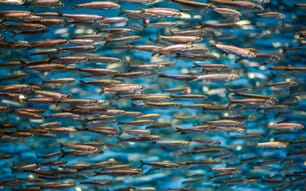In April and September 2011 there were five unauthorised incursions into New Zealands Exclusive Economic Zone (EEZ) by three Chinese fishing vessels: Ron Da Yang 8 (BBZL6), Lu Rong Yuan Yu 29 (BBZN4), and Lu Rong Yuan Yu 17 (BZSI2).
The three vessels were identified as operating inside New Zealands EEZ in the northernmost Kermadec area, while not being authorised or licensed to do so.
New Zealand referred the matter to China for a formal investigation and it was determined that the incursions, while unauthorised, were not intentional. The incursions were however, a breach of New Zealand fisheries law.
The ship owners acknowledged the offending and a payment of NZ$50,000 per ship has been made to the New Zealand Government. Subsequently, China has implemented a 10 nautical mile buffer zone around the New Zealand EEZ and also now requires Chinese vessels to use both paper and electronic navigational charts.
MPIs Deputy Director General Compliance and Response, Andrew Coleman says this is a pleasing outcome that shows illegal fishing activity within New Zealands EEZ will not be tolerated.
We must protect our fisheries from the threat of illegal fishing activity, including in remote and environmentally sensitive marine areas such as the Kermadecs, Mr Coleman says.
The Ministry of Foreign Affairs and Trade (MFAT) and MPI worked closely with the Chinese authorities to resolve this matter.
These incursions were picked up by MPI using the Vessel Monitoring System (VMS) operated by the Western and Central Pacific Fisheries Commission and the Forum Fisheries Agency. New Zealand has the fourth largest EEZ in the world.
Our maritime patrol capability, which includes the New Zealand Navy, Air Force and MPI, is doing an excellent job preventing illegal, unreported and unregulated fishing activity. Close cooperation with neighbouring Pacific Island countries and regional agencies is also paying dividends in joint work to protect the shared tuna and billfish fisheries of the South Pacific, Mr Coleman says.
The ability to have a fishing vessel placed on the Western and Central Pacific Fisheries Commission Illegal, Unreported and Unregulated (IUU) Vessel List has created a strong incentive for flag states to address IUU fishing incidents.
On the high seas, vessels must fly the flag of a country they are registered to their flag state. The vessel has to operate according to that countrys laws, including their fishing laws. If the country has signed up to any international agreements, the vessel must abide by those as well.
We need to continue to be vigilant and keep working in a highly effective, coordinated way to protect our fisheries and the marine environment, Mr Coleman says.
Fisheries Law Breach Proves Costly
NEW ZEALAND - Breaching New Zealand fisheries law has proved costly for the owners of three foreign-flagged fishing vessels.
by Lucy Towers



